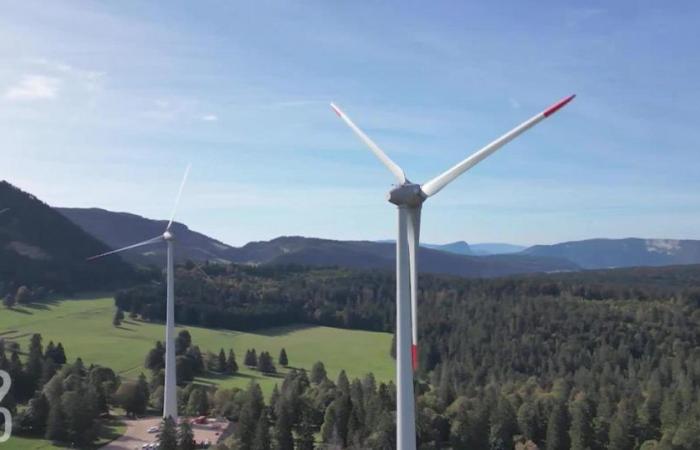Negative prices on electricity markets were observed eight times during the month of May in Switzerland. But this has no impact on consumers’ bills.
On May 12, for example, the megawatt hour was sold at -140 francs. A similar phenomenon appeared in France, Germany, Belgium and the Netherlands, where the price collapsed to -200 francs. At issue: production at its highest and the impossibility of storing electricity.
“The price mechanism depends on supply and demand. On weekends, there is less demand, less consumption, while the production which comes from wind, water or sun remains stable” , explains in the 7:30 p.m. Johann Ruffieux, responsible for electricity supply at Groupe E.
Advance purchase by suppliers
However, these negative prices will not be reflected in your bill, because suppliers buy a large part of the electricity in advance. Only a small quantity is acquired daily in the markets.
“We buy a year in advance to control the risk. If we buy everything at the last moment and prices soar like in August 2022, we have prices that explode,” notes Corinne Andrist, specialist in prices and tariffs. at the Federal Electricity Commission (ElCom).
Off-peak hours
Consumers could benefit from these particularly advantageous prices by implementing off-peak hours during the day, similar to what happens at night.
Fabien Deillon, owner of guest rooms, has to change the bedding almost every day. He washes this laundry late at night. “I loaded the machine with laundry from customers who left and I programmed it so that it would start this evening after 10 p.m.,” he illustrates in his laundry room.
The landlord benefits from advantageous rates from Monday to Friday, from 10 p.m. to 6 a.m. The kilowatt hour, billed at 30 cents during the day, costs nine cents less at night.
Last year, he and his partner used 60% of their electricity during this nighttime schedule. Enough to save 750 francs.
Towards the end of a system?
Off-peak hours, at night, could nevertheless become obsolete with the development of renewable energies.
“There will certainly be changes and adaptations. Network managers are deep in thought, and ElCom too,” underlines Corinne Andrist.
Charlotte Onfroy-Barrier/friend






